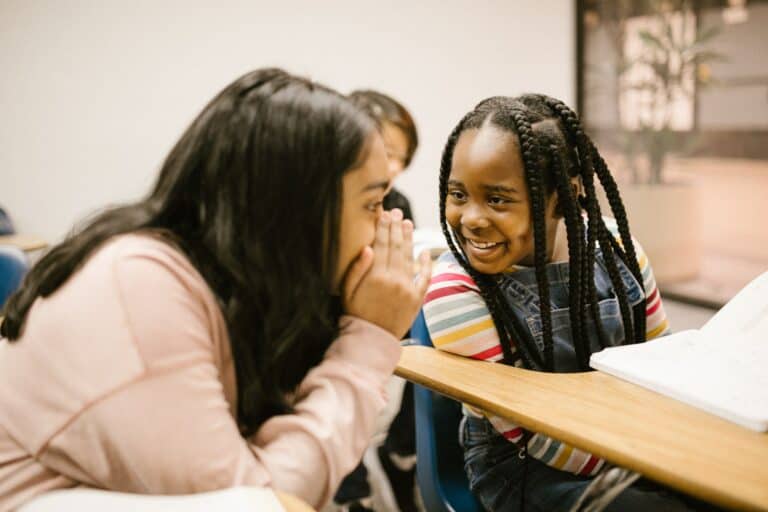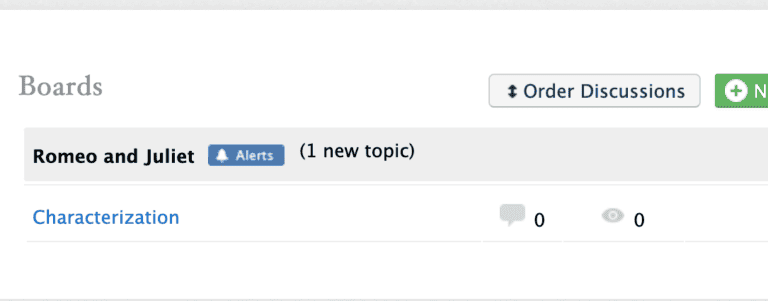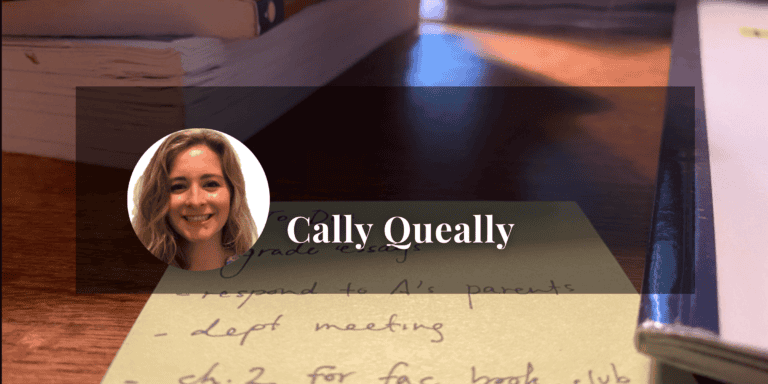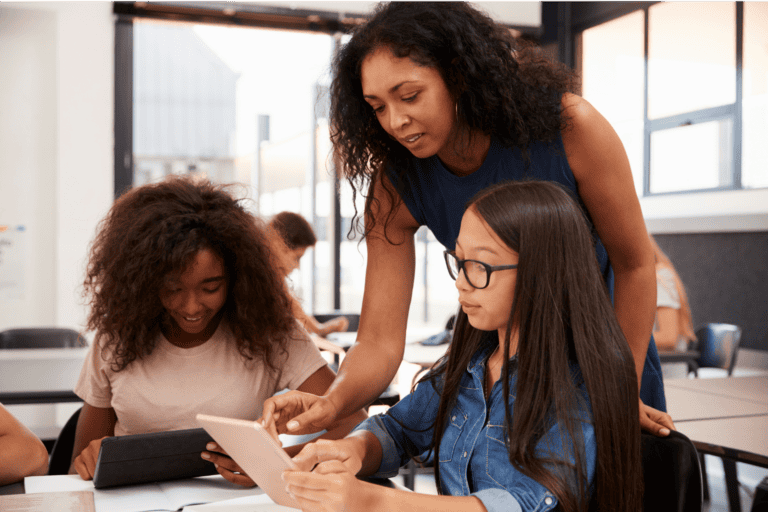Take Action: The Power of Research in Schools
Sarah Odell is the Director of Faculty Practice and Research at the Hewitt School’s Center for Gender and Ethical Leadership in Society. We recently spoke with her about the power of research in schools. The interview that follows has been lightly edited for clarity.
Tell us a little about your role at Hewitt.
I run the center for Gender and Ethical Leadership in Society at Hewitt, which combines the insights of distinguished research partners with active research projects to help young women and girls forge a more gender-equitable workforce and society.
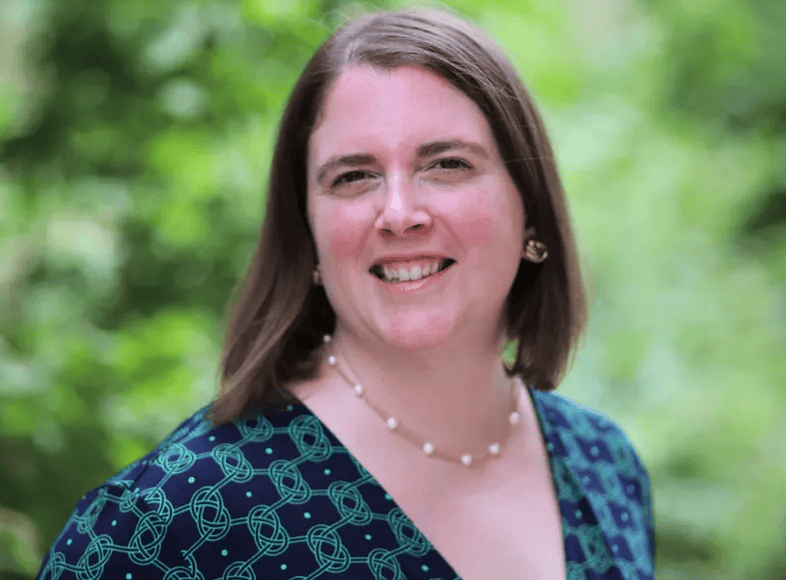
Right now, we’re involved in a multi-year study with Carol Gilligan, whose work focuses on gender and girls’ voices. We’re looking at basically the fact that when girls hit middle school in particular, they become socialized not to say what they know to be true, and they gain a lot of reward for that.
Interesting. What does that avoidance look like in the classroom?
You’ll often hear the phrase “I don’t know.” In her research, that’s what Carol calls a “cover voice” – and that’s the voice of patriarchy.
If you say to these students, “well, do you really not know?” The sort of switch phrase you’ll often hear is “well, actually.” “Well, actually, if I were to be honest…” or “well, actually, if I were to tell you what I knew…”
My first teaching job in 2013 was at a co-ed school that had only been co-ed since 1999. My English class only had two girls in it, and they never spoke. It was as if they didn’t want to appear smart in front of the boys in the class.
And even at Hewitt, just because they’re at a girls’ school doesn’t mean female students don’t exist in the world. They’re getting messages from all over the place to behave this way, and we don’t always interrupt it. That’s part of what we’re trying to do here: to figure out how to teach into that dynamic.
Sometimes, girls and women can be the biggest gatekeepers, sort of keeping the status quo in tact. One of the things Carol has been saying more recently, which I love, is that women are the keepers of the secrets of the patriarchy. And I think that is a really powerful statement.
Absolutely it is. How do you go about untangling the patriarchy, then? How are you using research to make a difference for your students and for girls everywhere?
I’ve been involved in essentially trying to operationalize Carol’s works, and our action research work is one of the ways we think about doing that. That work gives students a rigorous process to go through to unearth how they feel about any particular topic.
What does that look like at Hewitt?
We do a big institutional survey with YouthTruth every spring. Then, in the fall, the students that are doing action research learn social science methods and do a deep dive into action research. They then formulate a research question around one of the findings from the survey and spend a year investigating that question. For instance, this year our students in the upper school posed the research question: What is success at Hewitt?
Let’s take a step back for a second. What exactly is action research?
Action research is the idea that the group being studied is one and the same as the researcher. So you have students doing research on their own experience, and you have faculty doing research on their teaching experience.
Action research also embraces the idea that it will have some sort of immediate impact on the community itself. I always tell people that sometimes the immediate impact is the act of doing it – it’s not insignificant to take part in a research project, even if the board of trustees doesn’t make a massive policy shift as a result.
It’s the idea that we can all gather evidence from any place within our schools. For teachers, it’s a way of getting them to think about gathering data on a more regular basis that is actionable. We run into this problem a lot – where teachers are not giving feedback to students very frequently. Rather, they often give one big assessment at the end of term. In some classes, that’s the first time kids are even hearing any sort of feedback.
Action research is the idea that we can all gather evidence from any place within our schools.
Sarah Odell
I think about action research as something as simple as an exit ticket for teachers, or any of the myriad ways that a teacher can assess discussion, and then giving that information back to students and seeing how they may or may not change their behavior as a result.
What would you say to faculty who might be considering this type of work in their own schools?
The thing that I keep coming back to as it relates to the action research work: Carol says that the opposite of patriarchy is not matriarchy; it’s democracy.
That, to me, is another reason why action research work is so fundamental. It shifts the power balance. I facilitate action research with two other teachers, a math teacher and a history teacher in the Upper School. In terms of the actual research, we’re all on equal footing.
Our kids are present at round tables with the Head of School and other leaders. Our kids are around faculty meetings as a result of this work. It does all these things to kind of invert the power balance within the institution. It moves us toward a more democratic framework, and it is an authentic way to give kids real leadership opportunities.
I mean, at the end of the year when the kids presented their work, we were blown away. They didn’t speak from notes, because they understand this work inside out and backwards. They live with it, and it’s made all of them – even my more introverted students – much more capable presenters.
That’s very much in line with what we see at R.E.A.L. When we empower students with the skills the need to have in-person discussions, we see them thrive.
Thank you so much for joining us and sharing more about your action research work, Sarah!

